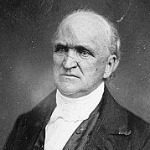Quotes about Miracles-Abused
Peter knew a sounder basis for faith than that of signs and wonders. He had seen our Lord Jesus Christ receive honor and glory from God the Father in the holy mount; he had been dazzled and carried out of himself by visions and voices from heaven; but, nevertheless, even when his memory and heart are throbbing with recollections of that sublime scene, he says, “We have something surer still in the prophetic word.”… It was not the miracles of Christ by which he came to know Jesus, but the word of Christ as interpreted by the Spirit of Christ.
Cited in Marvin Vincent, Word Studies in the New Testament: 2 Peter, Eerdmans, 1980, p. 687.
My appeal is for you to rest in God’s sovereign will and to put more emphasis on developing discipline in your life, learning and practicing God’s Word, becoming holier in word and spirit, proclaiming the gospel, and “engaging in good deeds” (cf. Titus 2:14; 3:1, 8, 14), rather than being enamored with the pursuit of visible signs. Be careful about following those who can turn miracles on at 7 p.m. during a certain meeting. Pray and trust at all times, but do not become absorbed in a lust for miraculous signs like the wicked and adulterous generation Christ spoke of (Mt. 12:39). It will be an illusory journey that will often disappoint you.
Seeking Miraculous Healings: Musings and Cautions, Christian Communicators Worldwide, www.CCWtoday.org. Used by Permission.
Though miracles of all types did speak of Christ’s divine origin and were instrumental in authenticating His and His apostles’ message (see Jn. 3:2; 10:38; Heb. 2:1-4), Christ surprisingly did not appreciate those who sought for a sign. Herod was among them (Luke 23:8). In fact, Jesus said, “An evil and adulterous generation craves for a sign” (Matt. 12:39).
Seeking Miraculous Healings: Musings and Cautions, Christian Communicators Worldwide, www.CCWtoday.org. Used by Permission.
Ultimately, no sign, miracle, wonder, or gift will persuade a person to believe if God has not opened his heart to receive the word (cf. Acts 16:14; Lk. 16:27-31)… Many who see signs will at first appear to believe, yet will still be unconverted. “Many believed in His name, observing the signs which He was doing,” said John. “But Jesus, on His part, was not entrusting Himself to them” (John 2:23-24). Why not? John says it was because Jesus knew their hearts (v. 25). Seekers may be entranced by the miraculous and look as though they are true believers, yet still be unchanged in their hearts.
Seeking Miraculous Healings: Musings and Cautions, Christian Communicators Worldwide, www.CCWtoday.org. Used by Permission.
God did not rescue Paul in Asia (2 Cor. 1:8-11) or spare Epaphroditus from death (Phil. 1:27) in order to encourage others to seek a miraculous deliverance from affliction. Rather, these acts of deliverance were intended to encourage Paul and the rest of God’s people to endure suffering in their own lives as a profound testimony of God’s sufficiency (2 Cor. 1:6; 4:7-12; Phil. 4:6). This side of Christ’s return, God does not reveal His power and love in our lives primarily by performing miracles but by enabling us to persevere in the midst of adversity because of our trust in Him. God rescued Paul in the past to teach him to trust God for his future, in order that he might endure in the present.
Why do God’s People Suffer? by Scott Hafemann taken from The God of Promise and the Life of Faith by Scott Hafemann, copyright 2001, Crossway Books, a division of Good News Publishers, Wheaton Illinois 60187, www.crosswaybooks.org, page 152.
Some would suggest that Jesus was “seeker sensitive” in that He worked His miracles in order to attract large crowds to which He could share the gospel. But in several passages it is plain this is not His motive: Mark 5:43; 7:36; 8:26, 30; and Luke 4:9-12 (and these are by no means exhaustive). Clearly, Christ did not intend these miraculous works for public exploitation. There is little to indicate Christ worked miracles in order to draw a crowd. He was opposed to selling the gospel by appealing to their love for the sensational. (See Jn. 2:23-25)… He sharply rebuked the five thousand for seeking Him for merely physical satisfaction. Jesus did not teach us to draw people to Him by appealing to their senses. Instead He claimed full responsibility for drawing all to Himself by way of the cross (Jn. 12:32); therefore, exalting Christ, "and Him crucified," is to be the primary object in worship, as well as evangelism. (See Rev. 5:8.)
The Sensitivity of True Worship, Christian Communicators Worldwide, www.CCWtoday.org. Used by Permission.
Demanding sensational proof is not evidence of faith but of doubt. To long for the visible sign, the big miracle, the dramatic proof is nothing but masked unbelief. It is the farthest thing from faith.
Any sensationalism inevitably is frustrated by the law of diminishing returns. People are never satisfied. They always want one more sign, one more miracle, one more show. To have maintained His influence over the people by the use of miracles, Jesus would have had to produce greater and greater sensations. Because the natural, carnal heart can never be satisfied, this year’s miracle would have become next year’s bore. His followers would only have been lovers of sensation, not lovers of God.
People who want to see miracles today should stop following fake healers and start engaging in biblical evangelism. To see a spiritually dead sinner made alive in Christ Jesus by the power of the Spirit is to witness an actual miracle of God.
While first-century witnesses to Christ’s authentic miracles walked away from them and from Him (John 9:13—22), twenty-first-century Christians seem to be curiously drawn to experiences that are not even worthy to be compared with Christ’s miracles.
God the Father by John MacArthur and Richard Mayhue taken from Biblical Doctrine by John MacArthur and Richard Mayhue, copyright 2017, Crossway Books, a division of Good News Publishers, Wheaton Illinois 60187, www.crosswaybooks.org. Page 218.
Miracles, according to the biblical definition, preclude the necessity of secondary means and are not limited by the laws of nature. They involve God’s supernatural intervention. Jesus’s miracles were never limited; they were never doubted; they were performed in public; they were abundant and instant. Anything that would claim the title miracle today should also possess those qualities. Unfortunately, the contemporary church tends to trivialize the idea of miracles by labeling anything out of the ordinary as miraculous.
God the Father by John MacArthur and Richard Mayhue taken from Biblical Doctrine by John MacArthur and Richard Mayhue, copyright 2017, Crossway Books, a division of Good News Publishers, Wheaton Illinois 60187, www.crosswaybooks.org. Page 217-218.
The truth is, those who claim miracles today are not able to substantiate their claims. Unlike the miracles in the New Testament, which were usually done with crowds of unbelievers watching, modern miracles typically happen either privately or in religious meetings. The types of miracles claimed, too, are nothing like New Testament miracles. Jesus and the apostles instantly and completely healed people born blind, a paralytic, a man with a withered arm – all obvious, indisputable miracles. Even Jesus’ enemies did not challenge the reality of His miracles! Moreover, New Testament miracles were immediate, thorough, and permanent. Our Lord and His disciples never did a miracle slowly or incompletely.
Now, could God in cutting-edge missionary situations grant miracles and signs and wonders to accredit the gospel as He did in apostolic times? Yes. But that’s not the same thing as having these gifts as a regular feature in the ongoing life of the church. If the signs and wonders of the apostles have returned, we should see the blind receiving their sight, the lame walking, and the dead being raised. God heals today (sometimes dramatically), but the healing of colds, the flu, TMJ, stomach, and back problems, and so forth aren’t in the same category as the healings found in the Scriptures. If people truly have the gift of healing and miracles today, they need to demonstrate such by performing the kinds of healings and miracles found in the Bible.
Why I Am a Cessationist, www.thegospelcoalition.org/article/cessationist Used by Permission from the Gospel Coalition. www.thegospelcoalition.org
[Miraculous gifts] were not for the possession of the primitive Christian as such; nor for that matter of the Apostolic Church or the Apostolic age for themselves; they were distinctively the authentication of the Apostles. They were part of the credentials of the apostles as the authoritative agents of God in founding the church. Their function thus confirmed them to distinctively the Apostolic Church, and they necessarily passed away with it.
Men can see the greatest miracles and miss the glory of God. What generation was ever favored with miracles as Jesus’ generations was? Yet that generation crucified the Son of God!
Christian: Take Heart! By Permission of the Banner of Truth Trust, Carlisle, PA. 1987, p. 106.








